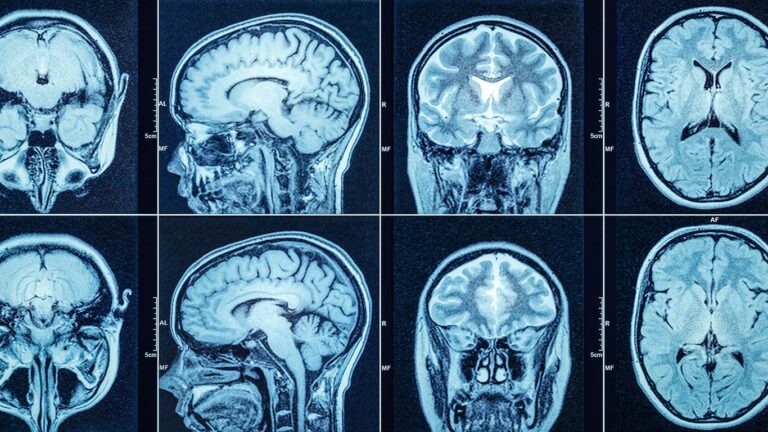An essential aspect of treating head injuries is correct and timely diagnosis. A CT scan is one such diagnostic tool that can be of some benefit in selected brain injuries.
In this article, we will discuss the role of CT scanning in the context of head injuries, its advantages and limitations, and how this information can guide appropriate treatment decisions.
Understanding Head Injuries: The Importance of Accurate Diagnosis
Head injuries vary from mild concussions to severe head injuries (traumatic brain injuries). Accurate and timely diagnosis is essential for medical professionals. It helps to assess the severity of the injury, plan a treatment regimen, and watch out for any complications that may develop.
In this context, CT scans have become valuable tools, especially for more severe injuries. They can offer invaluable information to guide the healthcare provider in delivering the best care possible.
CT Scan: The Window to the Brain
Computed tomography (CT) scanning is a series of cross-sectional images of the brain taken using X-ray images from several angles. Healthcare professionals can visualize the brain’s structure with the detailed images obtained and locate any abnormalities or traumatic injuries. This includes bleeding, fractures, or swelling.
Furthermore, CT is highly effective in ruling out life-threatening causes, which can be targeted for immediate intervention or monitoring.
Advantages of CT Scans in Head Injury Assessments
1. Speed and Quickness: CT scans are done very quickly without causing any inconvenience to the patient, making them an excellent choice in an emergency.
2. Brain Bleeding: CT scans provide exceptional sensitivity when it comes to identifying intracranial bleeding. This life-threatening head injury complication needs early intervention.
3. Facilitate Making Treatment Decisions: Early and accurate visualization of the brain’s structure and associated injuries allows the healthcare provider to decide on surgery, medication, or other treatments.
4. Monitor Progress and Guide Management: CT scans are critical in monitoring the progress of injuries, as well as treatment effectiveness. This will help guide adjustments to the treatment plan when needed.
Limitations and Considerations
CT scans are beneficial, but the limitations and associated radiation exposure need to be considered. Some things to remember are:
1. Exposure to Radiation: CT scans use X-rays, so each scan does expose the body to a tiny bit of ionizing radiation. While it is rare, repeated exposure can increase the risk of cancer development.
The benefits of a CT scan almost always outweigh the potential risks, especially if something is going on that is hard to diagnose without a CT scan.
2. Lack of Soft Tissue Detail: CT scans are great for visualizing bony structures and acute injuries. However, they may not provide detail into subtle or chronic issues, such as minor injuries or damage to soft tissues.
3: Inability to detect subtle damage. These scans are limited to structural damage, not functional damage. This means that if there wasn’t outright damage to a particular brain area, but it was enough of an injury to cause symptoms, it wouldn’t appear on a CT scan.
This often leads to things appearing “normal” despite ongoing symptoms.
Alternatives to CT Scan
Video Nystagography, or VNG, will be a great follow-up test to assess dysfunction after a head injury. This, paired with the proper cervical spine testing, will give providers an idea of the level of function of several vital areas that can be involved with head injuries.
If the traditional testing were “normal,” this would be a great next step.
The biggest thing to remember about VNGs is that you would have to find a specialized clinic to perform these assessments. These generally include EENT specialists, vestibular physical therapists, and chiropractic neurology clinics.
Click to schedule a call with one of our doctors at The Neural Connection to learn more! Based on your injury and current symptoms, we can help troubleshoot who you need.
CT Scan After Head Injury Isn’t The Only Option
Early and correct diagnosis is crucial for proper treatment and maximizing patient recovery from head injuries. CT scans are essential in determining the extent of head injuries, complications likely to arise, and the choice of the best course of management.
They are invaluable if you believe something is broken to the point that it may need surgical intervention.
Physicians depend on CT scans due to their unsurpassed ability to afford detailed views of the structures of the brain, facilitating the delivery of individualized and fast medical attention.
At The Neural Connection, we pride ourselves in being world-leaders in the functional neurology and brain-based rehabilitation sector. Check out our 88+ 5-Star Google Reviews to see what our patient’s say about us!
When you’re ready to chat, we’re here for you! Just click the link below to schedule your consultation.
Click here for a FREE 30-Minute Consultation
*Disclaimer: The information contained in this article is for educational and informational purposes only and is not intended to be used or construed as medical advice. Please consult your physician for any condition before changing your health care regimen.

